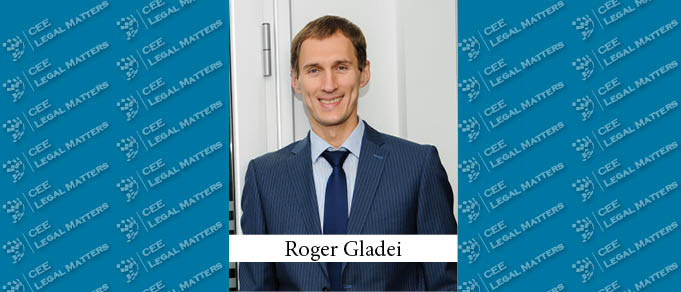“Finally, there has been some positive movement on the political scene,” says Gladei & Partners Managing Partner Roger Gladei, referring to Moldova’s Presidential elections last November. “President Maia Sandu’s win marked the beginning of a new political era for Moldova,” he says. “At least that’s the sentiment in the streets.” As the presidency is expected to make a dramatic 180 degree turn towards the West, President Sandu presents a strong contrast to the previous, more Russia-friendly administration.
“The President’s first serious move has been to appoint a new Prime Minister candidate,” Gladei says. In addition, President Sandu’s office has strongly advocated for the country to hold a general election, as the common perception, he says, “is that the current parliament is morally corrupt and has no legitimacy anymore. The question is not whether or not early elections will happen -- the sole question is when, either this spring or this autumn.” In the meantime, the president has nominated Natalia Gavrilita – a graduate of Harvard Kennedy School and a short-term Minister of Finance back in 2019, when Sandu herself was Prime Minister – for Prime Minister.
“The big question though,” Gladei says, “is whether this nomination is for real or is a political trick, designed to trigger a general election.” If Gavrilita is not confirmed twice by the Parliament, Gladei says, then-President Sandu could dismiss the Parliament and call for early elections. “Oil to the fire was poured by President Sandu’s own Party of Action and Solidarity, which stated – quite clearly and publicly – that it does not intend to support Gavrilita for Prime Minister.”
Regardless of the political stand-off with the Parliament, Gladei says that Sandu has inspired a wave of optimism among the people of Moldova – especially with her turn to the West. “The first official trips she took after assuming office were to Brussels and Kiev – as opposed to former President Dodon, who went straight to Moscow,” he says. Gladei hopes that Moldova will “do its homework” now and implement the agenda of its Association Agreements and DCFTA with the EU. “This would be a major thing and would indicate a strong incoming legislative agenda, which would, in turn, stimulate business,” Gladei says, pointing out that a significant number of legislative actions in recent years have been more aimed at settling political differences between prominent parties than facilitating economic growth.
“The business community of Moldova has, hitherto, gotten used to being left to its own devices,” Gladei says. “Too many previous governments’ promises that they would ‘most certainly take care of problems,’ ended up being dead letters on a piece of paper.” By contrast, he says, President Sandu has, even while Prime Minister, shown a vivid interest in the business community’s needs. “Business associations, including AmCham, where I am a Board member, met with then-Prime Minister Sandu and business was positively surprised with the manner in which she had immediately taken note of complaints and instructed her counselors to take actions on the spot,” he recalls. “Expectations are high that this will continue at a stronger pace now that she is President.”
Businesses are also expecting more from the Government in terms of support in facing the challenges of the pandemic. The previous government's response was, Gladei says, perceived as “reactive and rather weak (including due to the failure to obtain the promised large-ticket Russian sovereign loan), while the new government may count on a more robust budgetary support from IMF and other development partners.“
Struggling businesses have, somehow, been staying afloat in Moldova, Gladei says. “The biggest deals of note in 2020 are, still, the sale of Glass Container Group to Vetropack and of Moldcell to CG Cell Technologies back in March 2020 – which we had to do while wearing masks, in completely new territory.” He sighs. “There were no guidelines or frameworks that would accommodate doing business during the pandemic; we were left to our own devices.”
Still, Gladei feels optimistic about 2021 and believes that “foreign investments, particularly FDIs, will increase in numbers, incentivized by the promises for better investment protection and business climate, radiating from the new political elite.” He says that infrastructure and project finance transactions are expected to gain momentum too and that the “announced EBRD investment in Vestmoldtransgaz, which is still making us burn the midnight oil, should allow Moldova to diversify its gas supply and strengthen its energy independence.” Gladei firmly believes that new investors will come to Moldova as well, but it will be “the new Moldova.”



